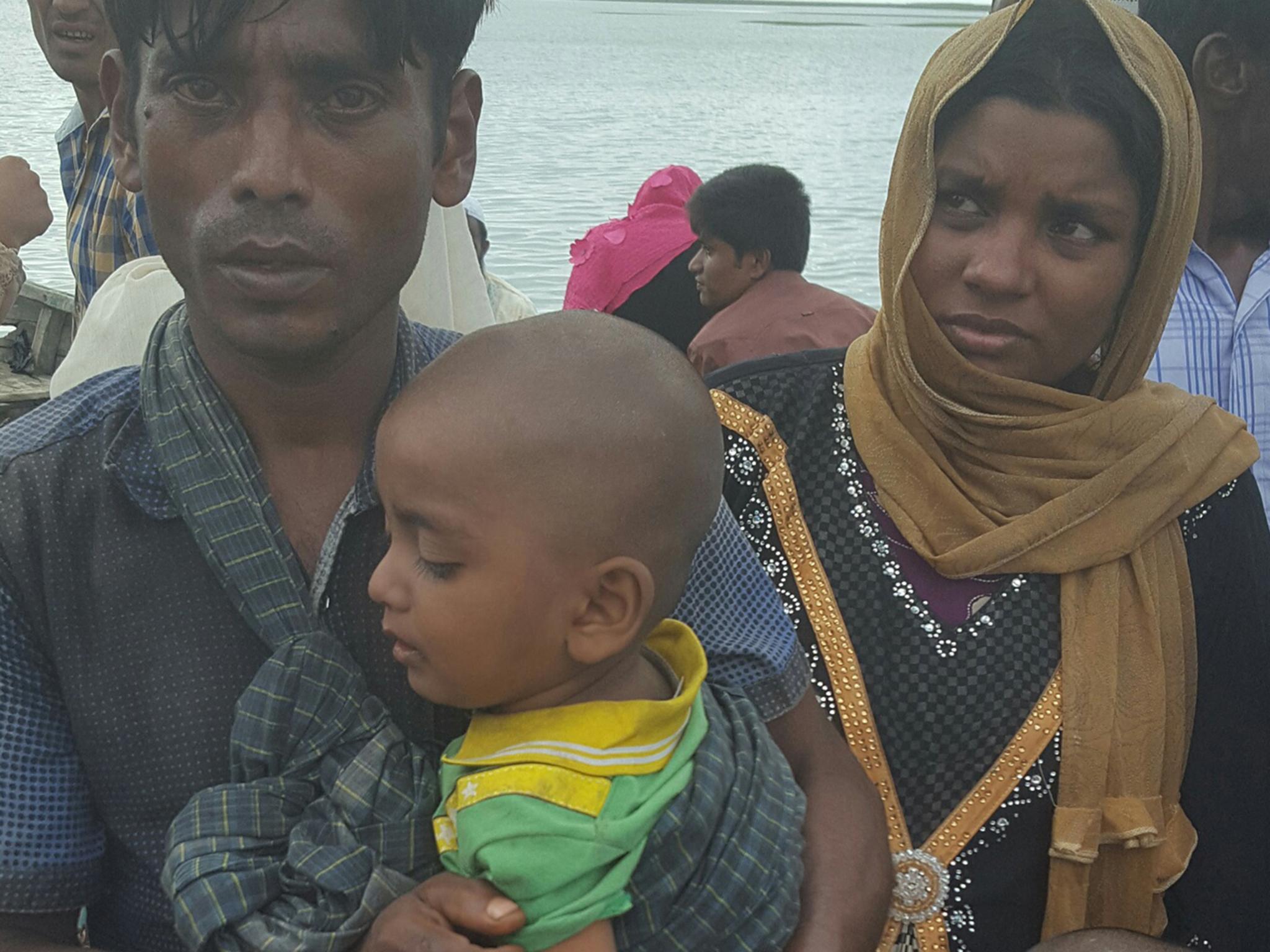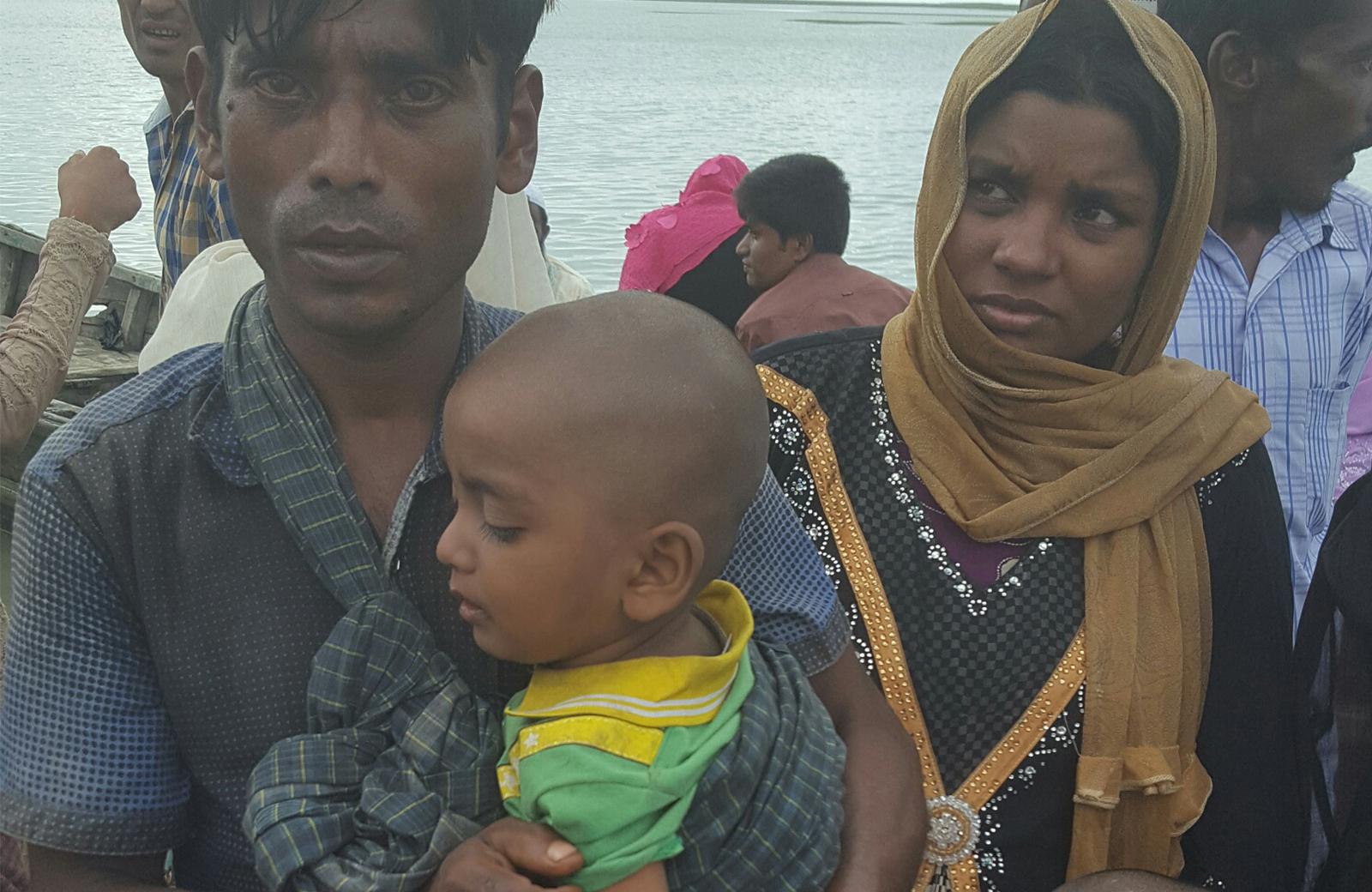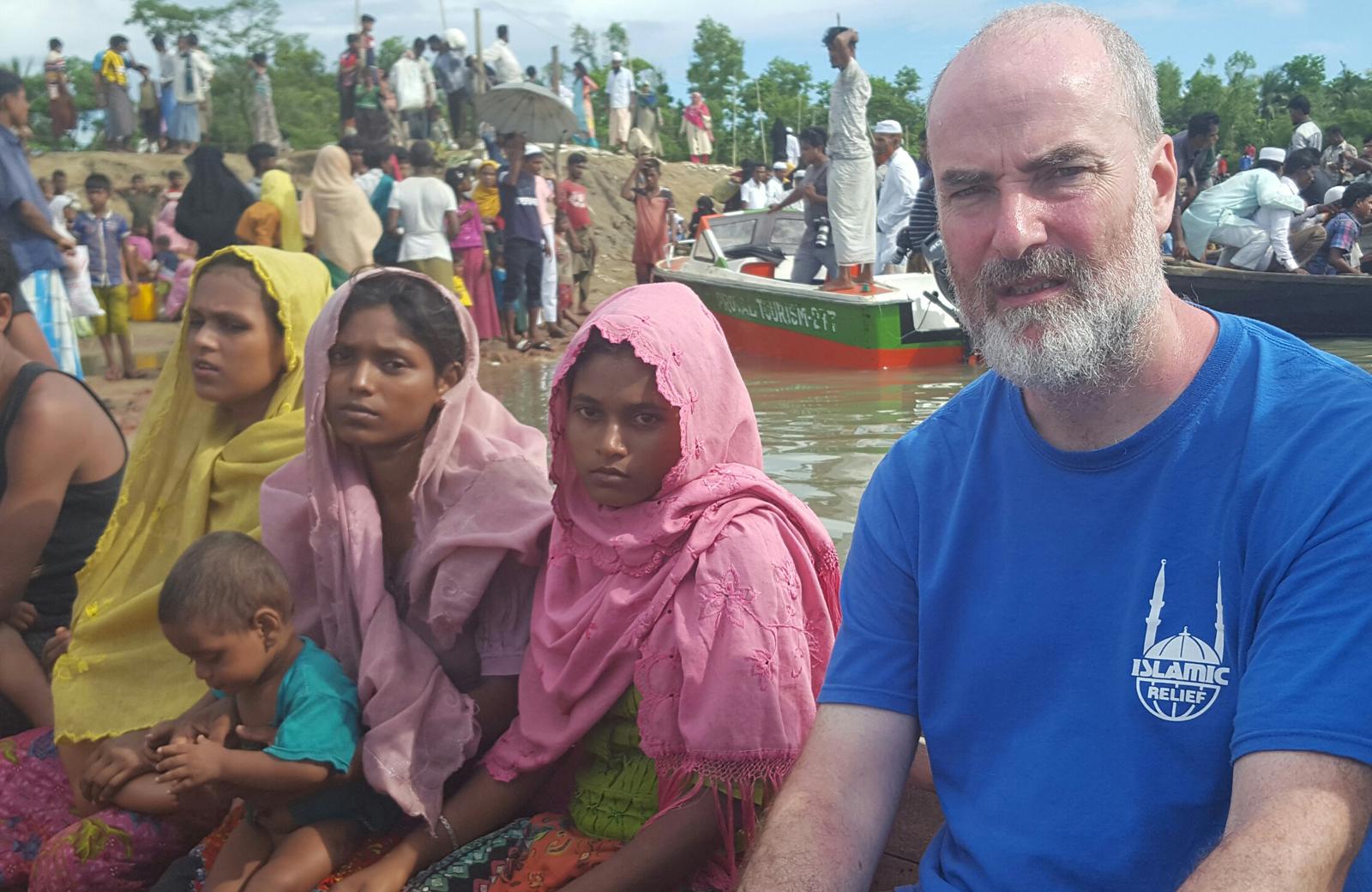What one volunteer witnessed from the frontline of the Rohingya refugee crisis in Bangladesh
At least 1,267 children have been separated from their families and are at particular risk of human trafficking, sexual abuse, child labour and child marriage

The emergency situation in Rakhine State, Burma, has worsened since 25 August when violent clashes began between minority factions and Burmese militants, resulting in a reported 1,000 plus fatalities and the displacement of hundreds of thousands.
The United Nations estimates that more than 400,000 men, women and children have fled Burma for refuge in Bangladesh since the violence erupted, with thousands more arriving each day.
Unicef estimates that 50,000 of the new arrivals to Bangladesh are pregnant women and an “unprecedented” 60 per cent of new refugees in Bangladesh are children. Many are malnourished and injured, having walked for days in search of sanctuary.
At least 1,267 children have been separated from their families and are at particular risk of human trafficking, sexual abuse, child labour and child marriage.
I’ve just returned from Bangladesh where I joined a team to assess the need on the ground and see how Islamic Relief can help these displaced people.
I met some of them when I joined my colleagues in the southern fishing port of Cox’s Bazar, before heading further south on the Naf River.
Here, thousands of refugees are fleeing Burma by boat.
From Bangladesh, if you look east to a ridge of tree-covered mountains, Burma is close enough to make out buildings and lights.
In Teknaf, the southernmost city on mainland Bangladesh, we walked to a crossing point used by the refugees.
There we found a dozen narrow wooden boats, which were collecting and dropping off groups of people carrying their few hastily-gathered possessions.
At the Teknaf crossing I met Muhammad Rafiq, his wife Nuru, and their four children.
The family fled their home as the conflict erupted and the river crossing was the second step on their journey through the border area.
Muhammad was accompanied by several members of his village and they all provided mutual support to each other.
Holding his two-year-old son, Noyum, in his arms, Muhammad told me: “We left in the middle of the night. We had time only to grab our children. We left everything behind.”
Noyum had a fever and was semi-conscious.
Muhammad needed to complete the next part of his journey quickly as his son required immediate medical attention.
However, Noyum had to compete with hundreds of others at this crossing with similar needs.

At the Tayum Kali refugee camp, roughly 4km from the Burmese border, I met Soydul Amin, who arrived in Bangladesh on 12 September with five family members.
He had to flee overnight and, like the others I met, also left his life possessions behind.
Soydul has shown incredible resolve by clearing part of a hillside then levelling it out using hand tools – aiming to, quite literally, build a new home for his uprooted family.
He has built a shelter frame out of bamboo, covering it with plastic sheeting purchased from the local market.
A resolute Soydul told me: “My family and I will clear this land and make a shelter. We will support each other and others around us.”
Many of these refugees are self-sufficient and stoic individuals, determined to make the best of a bad situation.

While this independent spirit is essential to get refugees through the chaos and confusion of their arrival in Bangladesh, it will be down to NGOs, such as Islamic Relief, for the most part to provide them with improved shelter units, water, sanitation and food.
Many of these refugee settlements are on hilltops. In early December – just over two months away – the temperature will drop dramatically and these makeshift shelters will prove inadequate for the coming winter months.
It is vital that the international community comprehends their plight and responds in their hour of need.
Now back home in England, I cannot help but wonder whether Noyum received the medical treatment he so urgently needed.
At the point where so many are seeking a new life away from sectarian violence, for too many it has marked the end of theirs. Surely their life is too high a price for anyone to pay.
Imran Madden is the UK director of Islamic Relief, which has launched an emergency appeal for Burma
Join our commenting forum
Join thought-provoking conversations, follow other Independent readers and see their replies
Comments